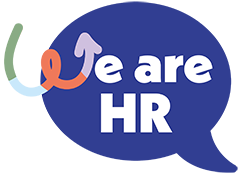Introduction
In today’s fast-paced and ever-changing work environment, resilience has become a critical attribute for individuals and organizations alike. Resilience enables employees to adapt, bounce back from setbacks, and thrive amidst challenges. It contributes to increased productivity, employee well-being, and organizational success.
Building resilience in the workplace brings numerous advantages. It enhances problem-solving skills, fosters a positive work culture, improves employee engagement and retention, promotes effective teamwork, and supports effective change management. Resilience empowers individuals to navigate uncertainty, manage stress, and maintain a healthy work-life balance.
The Chartered Institute of Personnel and Development (CIPD) offers a range of qualifications that provide in-depth knowledge and practical skills in HR and people management. Pursuing CIPD qualifications can equip you with the necessary tools and strategies to build resilience in yourself, your team, and your organization. Let’s explore how resilience can be nurtured in the workplace.
Understanding Workplace Resilience
Workplace resilience refers to the ability to adapt, recover, and thrive in the face of challenges, setbacks, and changes. It encompasses emotional, mental, and physical resilience. Key characteristics include flexibility, perseverance, optimism, problem-solving skills, and the ability to manage stress effectively.
The Role of HR and People Managers in Fostering Resilience is very crucial. They can create a supportive work environment, provide resources for employee well-being, and implement policies that encourage growth and learning. By leading by example and supporting employees, HR professionals can promote resilience at all levels.
Strategies for Cultivating Personal Resilience:
- Embracing a Growth Mindset
- Developing Emotional Intelligence
- Building Effective Coping Mechanisms
Resilient Leadership: Empowering Others
Resilient leaders inspire and motivate their teams, fostering higher levels of engagement and performance. They lead by example, demonstrate emotional resilience, and encourage open communication. By creating a supportive environment, resilient leaders empower their employees to overcome challenges and achieve their full potential.
Trust is the foundation of resilient teams. Resilient leaders prioritize building trust by being transparent, consistent, and reliable. They create opportunities for open communication, actively listen to their team members’ concerns, and provide constructive feedback. Trust and open communication foster a sense of psychological safety, enabling employees to take risks and adapt to changing circumstances.
Resilient leaders foster a positive work culture that encourages innovation, collaboration, and learning. They celebrate successes, recognize achievements, and promote a growth mindset. Additionally, they prioritize psychological safety, ensuring that employees feel comfortable speaking up, sharing ideas, and challenging the status quo without fear of retribution. A positive work culture and psychological safety contribute to greater resilience and overall organizational success.
Navigating Change and Uncertainty with Resilience
Change is a constant in today’s business landscape, and HR professionals are at the forefront of managing organizational change. Resilient HR professionals embrace change as an opportunity for growth, develop change management strategies, and effectively communicate with employees to minimize resistance and foster resilience throughout the transition.
During times of uncertainty and change, HR professionals play a crucial role in supporting employees’ well-being and resilience. They provide clear and transparent communication, offer resources for stress management, and create forums for open dialogue. By fostering a sense of stability and support, HR professionals can help employees navigate challenging times and maintain productivity.
Organizational restructuring and downsizing can be particularly challenging for employees. Resilient HR professionals approach these processes with empathy and fairness, ensuring transparent communication, providing support mechanisms, and offering training and development opportunities to help employees transition successfully. By focusing on employee well-being and fostering resilience, HR professionals can mitigate the negative impact of such changes.
Building Resilient Teams
Diversity and inclusion are essential elements of resilient teams. Resilient HR professionals and people managers embrace diversity, recognizing the unique strengths and perspectives individuals bring. They create inclusive environments where all team members feel valued and empowered to contribute. By leveraging diversity and inclusion, resilient teams can draw on a wide range of skills and experiences to overcome challenges.
Resilient teams thrive on collaboration and mutual support. HR professionals and people managers play a crucial role in fostering a supportive team environment by promoting effective communication, encouraging knowledge sharing, and facilitating collaborative problem-solving. By fostering a sense of camaraderie and shared purpose, resilient teams can tackle challenges more effectively.
Resilient teams prioritize continuous learning and professional development. HR professionals and people managers promote a growth mindset by providing opportunities for training, upskilling, and career development. By investing in the growth and development of team members, resilient HR professionals ensure that their teams are adaptable, innovative, and ready to face new challenges.
Resilience and Well-being
Resilience and employee well-being are closely intertwined. Resilient employees are better equipped to handle stress, maintain a positive outlook, and bounce back from setbacks, contributing to their overall well-being. By prioritizing resilience, organizations can create an environment that supports and enhances employee well-being.
HR professionals and people managers play a vital role in promoting work-life balance and providing mental health support. They advocate for flexible working arrangements, encourage employees to take regular breaks, and provide access to resources such as employee assistance programs or mental health support networks. By prioritizing work-life balance and mental health, organizations can foster resilience and well-being among their employees.
Resilient HR professionals and people managers promote self-care and stress management techniques within their organizations. They encourage employees to engage in activities that promote well-being, such as exercise, mindfulness, and taking breaks. By fostering a culture of self-care and equipping employees with stress management tools, organizations can support their resilience and overall well-being.
Conclusion
Resilience is a vital skill for HR professionals and people managers, enabling them to navigate challenges, support their teams, and drive organizational success. By building resilience, professionals can adapt to change, overcome setbacks, and inspire resilience in others.


